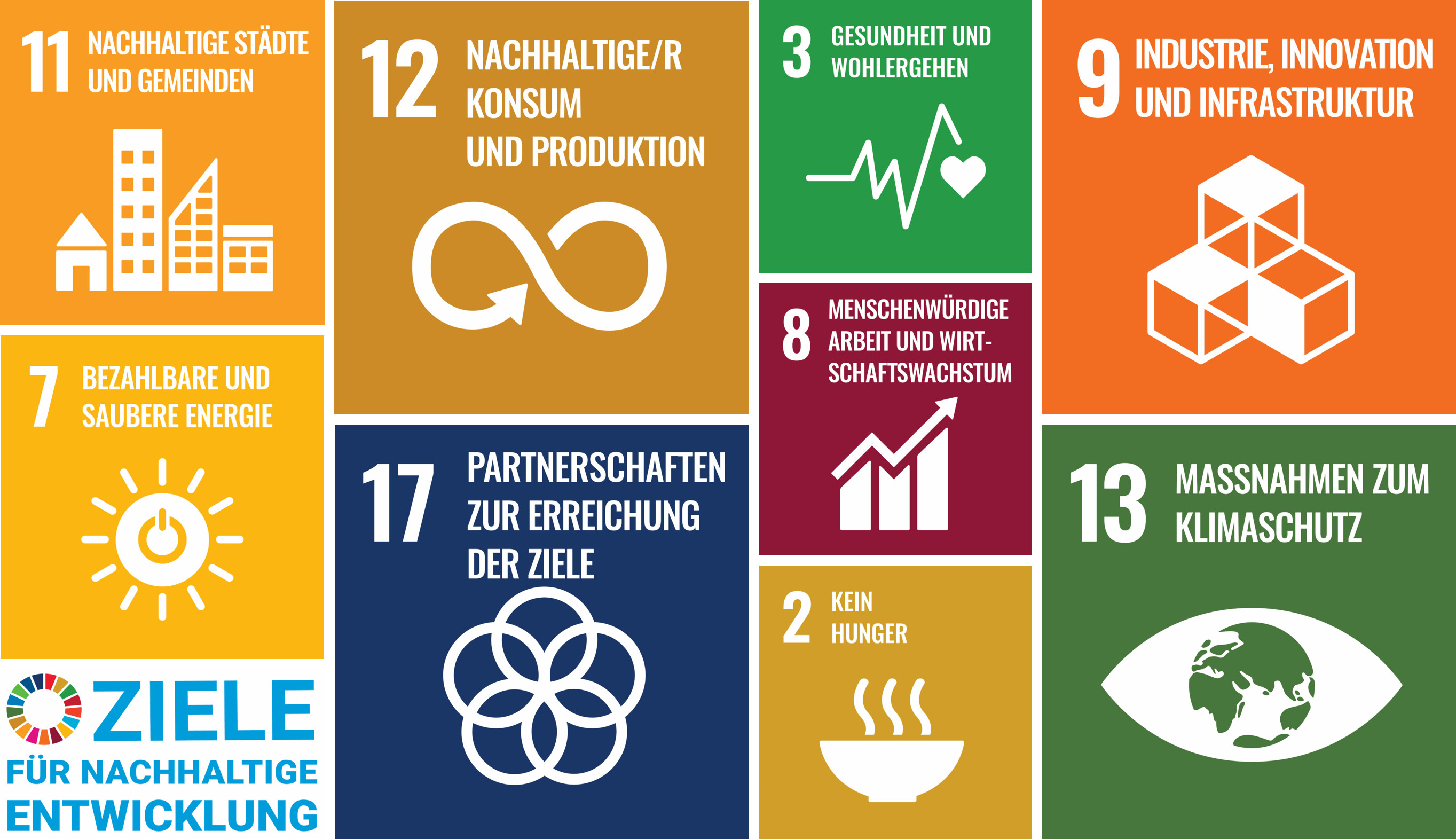
ZINK – WENN ES UM NACHHALTIGES BAUEN GEHT
Wir verstehen unter Nachhaltigkeit die effiziente Nutzung von Rohstoffen unter umweltverträglichen Bedingungen verbunden mit einer wartungsarmen und möglichst langen Nutzungszeit. Alles das bei Einhaltung gerechter und sicherer Arbeitsbedingungen sowie der Beachtung von soziokulturellen Bedürfnissen über die gesamte Entstehung eines Produktes hinweg. Am Ende der Nutzungszeit sollte das Produkt wiederverwendbar sein oder erneut und mit geringem Aufwand z.B. an Energie, Transport, Abfall, zu einem dauerhaft und zuverlässig nutzbaren Produkt verarbeitet werden können. Diese Nachhaltigkeitseigenschaften erfüllt Zink in Anwendungen wie
- Korrosionsgeschützter Stahl durch Feuerverzinken, thermisches Spritzverzinken und galvanisches Verzinken
- Gewalztes Titanzink an Dach und Fassade in der Architektur
- Produkte aus Zinkdruckguss für Tür- und Fensterbeschläge, Elektrotechnik, Automotive, Medizintechnik
Die von den Vereinten Nationen erstellten Nachhaltigkeitskriterien stellen eine Grundlage dar, geben Orientierung und sind von Relevanz auch für die Zinkindustrie.

Im Jahr 2001 hat sich die globale Zinkindustrie zu einer Nachhaltigkeitscharta bekannt, welche seit 2011 um Themen wie „Kinderarbeit“ und „Klimaschutz“ erweitert wurde. Die Zinkindustrie bekennt sich zu den Leitprinzipien des Umweltschutzes, einem offenen Engagement für Nachhaltigkeitsthemen und einer transparenten Darstellung von Produktions- und Produktparametern, auch in der Lieferkette. Ziel ist es, die Zinkerzeugung, -weiterverarbeitung und -verwendung im Einklang mit der Umwelt und den gesellschaftlichen Bedürfnissen zu betreiben, ohne dass dabei Risiken für Mensch und Umwelt entstehen.
https://www.zink.de/zink/nachhaltigkeit/ziele-und-charta/